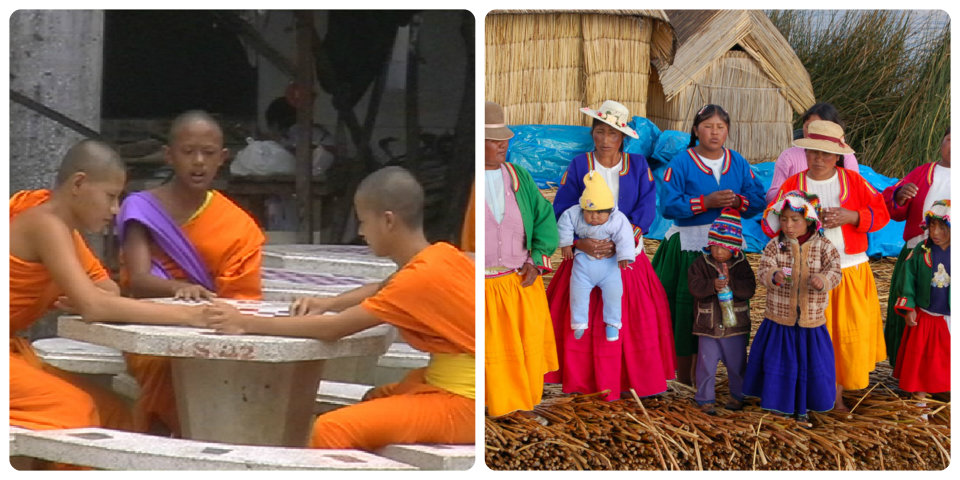1. Economic sustainability
This is about making sure that tourism businesses are profitable in the long term and provide appropriate employment for local people. This will bring income into the area, generated from tourism.

Providing camping sites is a common way in which farmers in areas such as the Peak District National Park shown above can generate additional income. The farmers may well employ additional labour to look after the camp site.
Eat local, buy local, stay local = encouraging tourists to support local businesses, helping sustainability.

Think about the jobs that might be supported by the businesses within the Peak District National Park, using the two images above as a starting point. Compile and compare a list with your group and other members of the class.
2. Ecological sustainability
This involves looking after the environment and natural habitats of plants and animals (maintaining ecological diversity). This can be brought about by asking people not to walk in certain areas and to respect wildlife.

3. Local sustainability
Sustainable tourism should benefit local communities and generate income for those communities. The employment opportunities provided by tourism should use local skills and crafts.

4. Cultural sustainability
This is about helping people who live in areas affected by tourism to maintain their culture, lifestyle and values.
It may also mean training local people in new skills so that they can obtain employment in the tourism industry. One important aspect about cultural sustainability is that local people should not be forced to give up their land for tourism development and should be involved in decisions about tourism development.

Tourists taking camel rides into the Sahara desert, led by Berber tribesmen helps, the tourists to understand the culture of the local people.
EVIDENCE LOG 4 - Cultural SustainabilityThe Berber boy in the photograph leads groups of tourists riding camels into the Sahara desert for an overnight stay.
- Tourists coming to my land helps my family to survive
- Tourists help me to learn new skills, including language
- I want to show tourists about my traditional way of life
- With the money I earn from the tourists I will be able to move to the city and find better work
- Tourists give me the chance of work
- I am proud to show tourists about the culture of my people
Which of the statements above does not support sustainable tourism? Make your decision and then explain why on the Evidence Log.
Full Screen5. Responsible Tourism

Responsible tourism asks travellers to have higher standards. It simply means treating others with the same respect you would ask for in your own community. Responsible tourism also involves respecting the environment of the destination being visited.
Every tourist can, and should behave in a responsible manner, although this is often not the case.

Tourists visiting each of the destinations shown in the images above should know how to behave responsibly and conduct themselves so as not to offend the local people.
The principles of responsible tourism include....
- Contributing to conservation
- Benefiting local people and producing long-term benefits
- Low impact on the environment
- Ethical behaviour
- Encouraging sustainable practices
- Respect for local culture
- Supporting small scale enterprises
Tour operators and other tourism businesses should also practice responsible tourism. If tourism businesses and organisations act in a responsible manner, individual tourists are likely to do so as well. This is why some activities, which show a lack of respect for the local culture are not seen as responsible tourism.

Copying local dances, as shown it the picture, is not respecting the local culture and is not responsible tourism.
